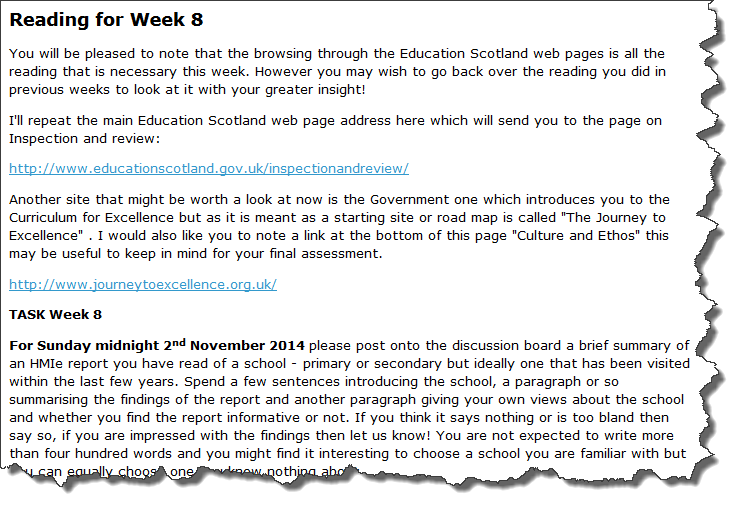A look inside the Child and Youth Studies BA (Hons) degree
Find out more about Child and Youth Studies BA (Hons) at the University of the Highlands and Islands.

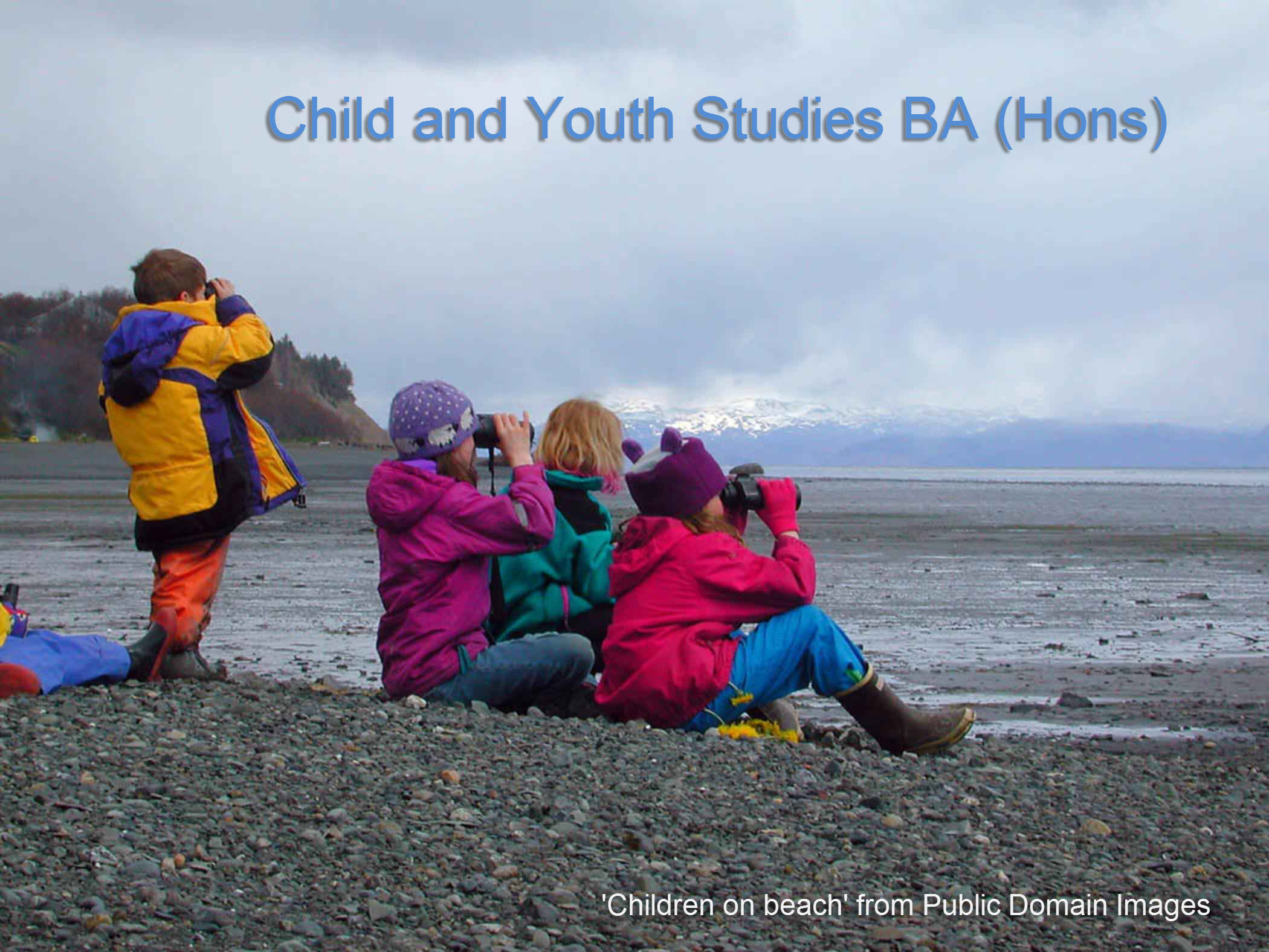
- Early Childhood
Philosophy and Practice - Sociology of
the Family - Providing a
Curriculum - The acquisition
of language
-
Early Childhood
Philosophy and PracticeSociology of the FamilyYear 1 – Core module: Philosophy and Practice
The aim of this module is to introduce students to early childhood philosophy and related curricular practice. In doing so the following learning outcomes will be covered:
- Demonstrate an understanding of early childhood philosophy.
- Identify and investigate both historical and contemporary perspectives that have influenced the development of early childhood philosophy.
- Describe the themes and characteristics of curriculum frameworks in early childhood.
- Demonstrate an understanding of current curriculum policy, practice and strategies that support an early childhood curriculum.
Throughout the duration of the module students have access to a mixture of learning resources and supportive interactive activities. Examples of these can be found in this ‘taster’. The learning resources offer information related to the module content and encourage students to undertake wider reading and independent research. These resources are supported with interactive activities and tutor input via short videos which encourage students to consolidate their learning. The use of online discussion forums and the creation of wiki pages fosters a reflective environment in which students are able to interact, seek support, share their developing understanding and learn from each other.
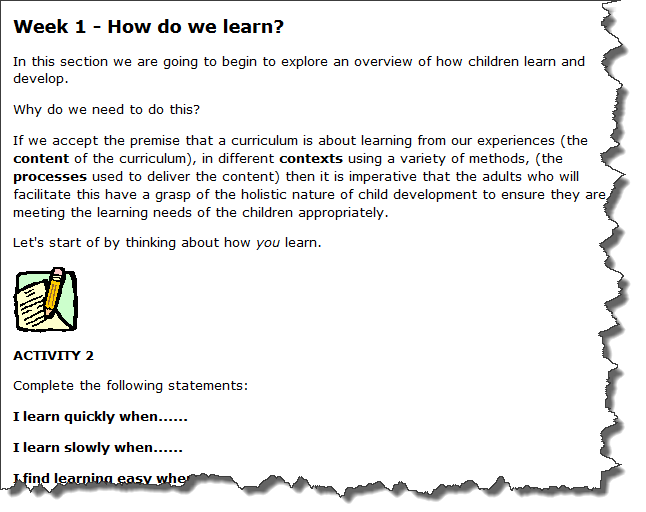
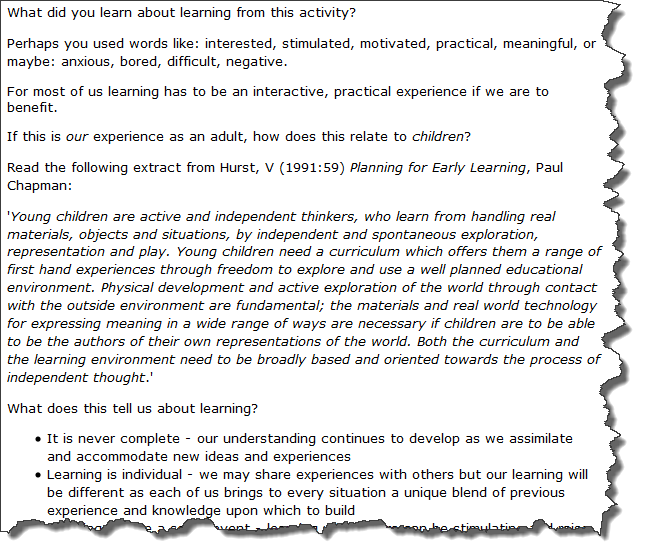
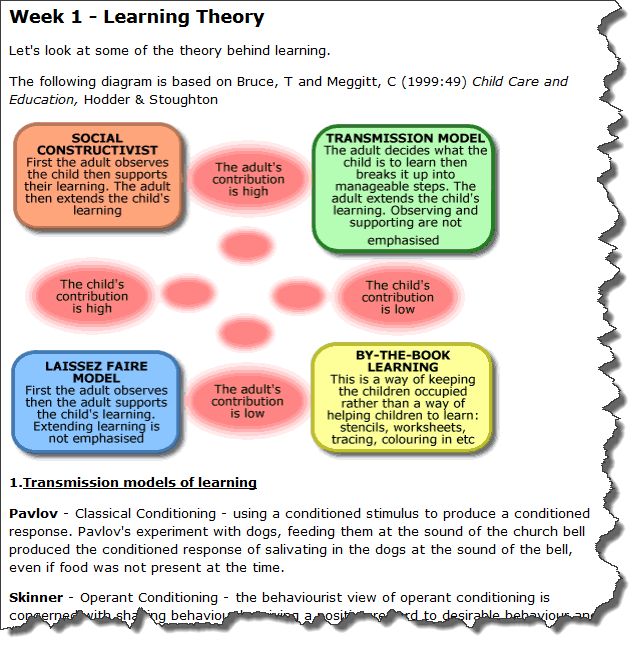
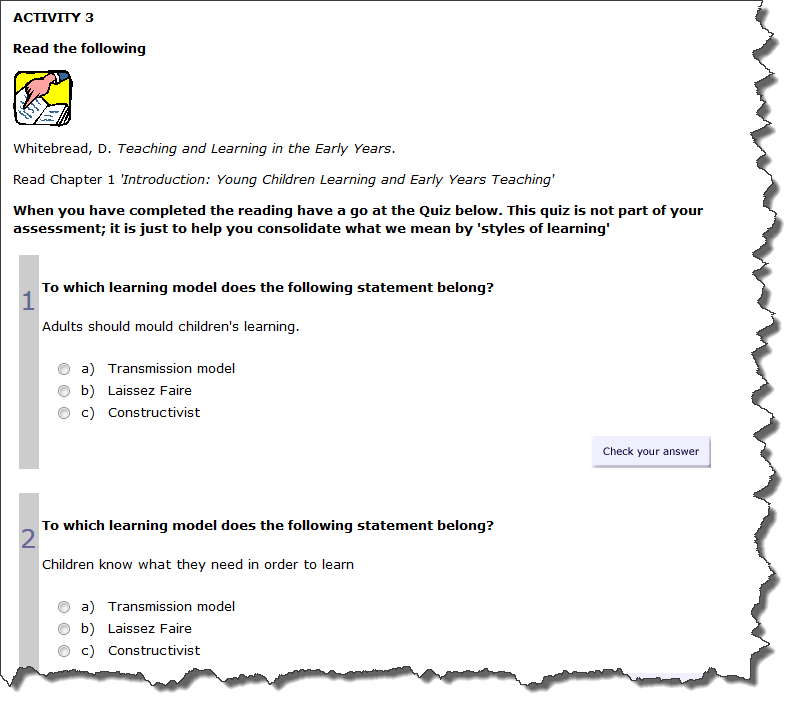
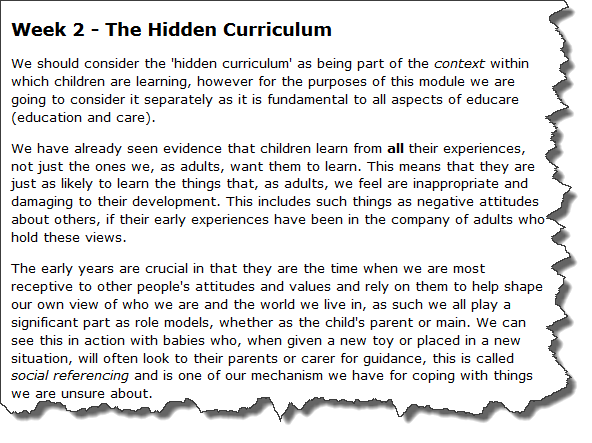
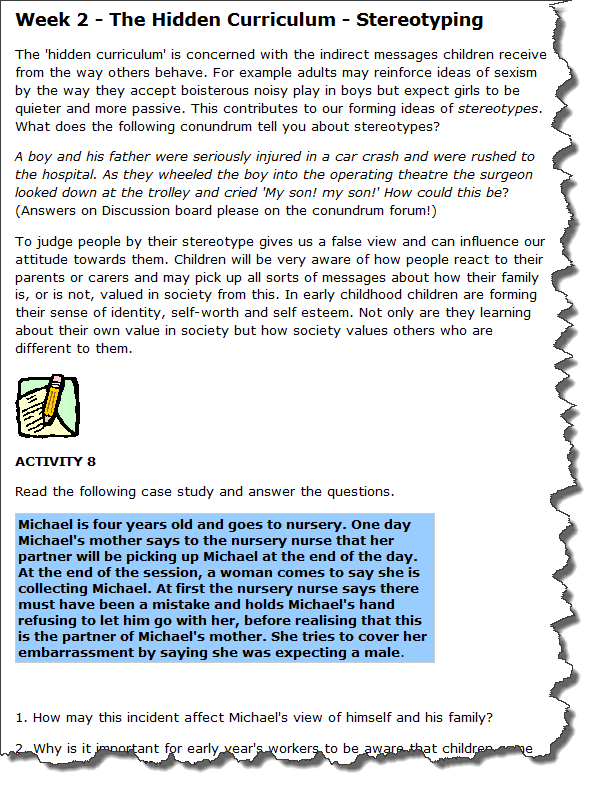 Providing a Curriculum
Providing a CurriculumYear 1 – Core module: Sociology of the Family
The ‘Sociology of the Family’ module aims to provide an introduction to sociological concepts and issues through a focus on the family and broader connecting issues.
The module provides you with the knowledge and skills to begin reflecting on the sociological influences impacting upon society, particularly through the lens of the family.
Developing a sociological imagination helps you to better understand social life, social change and the causes and consequences of societal behaviours. The modules will help you to see how private experiences and personal difficulties can be entwined with the structural arrangements of any given society.
Your criticality is enhanced through an understanding of relevant theory as well as the developing ability to make sense of policy developments, their sociological catalysts and impact.
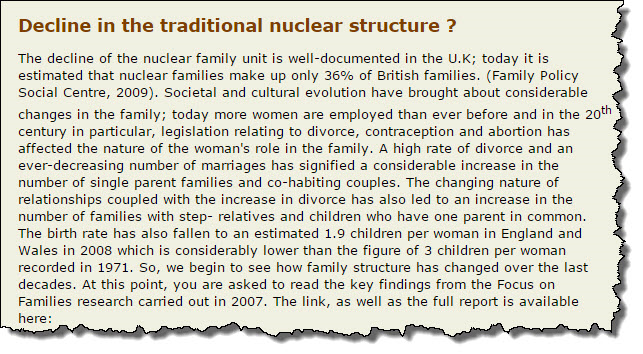
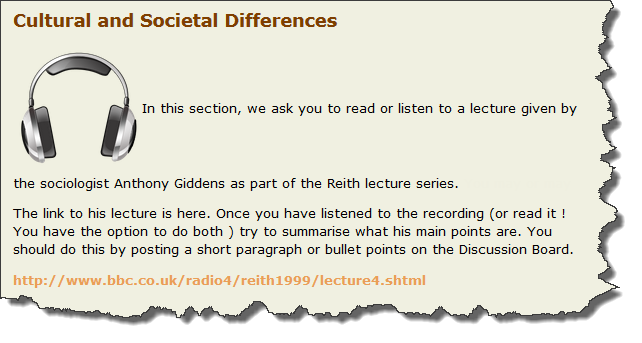
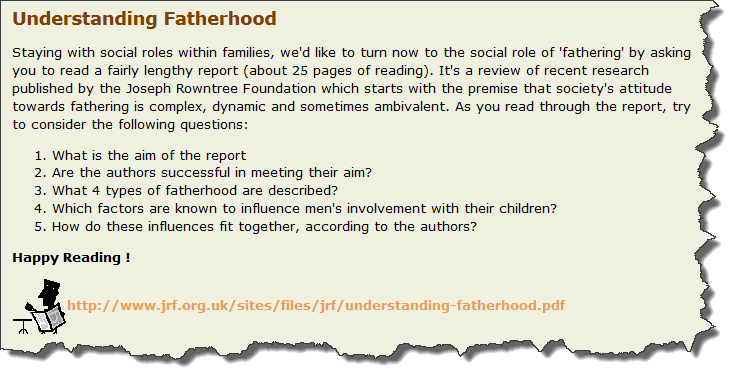
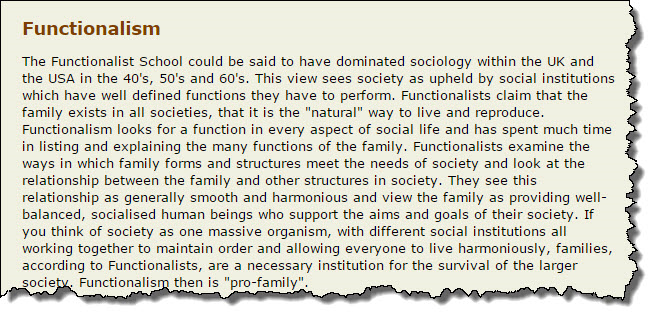
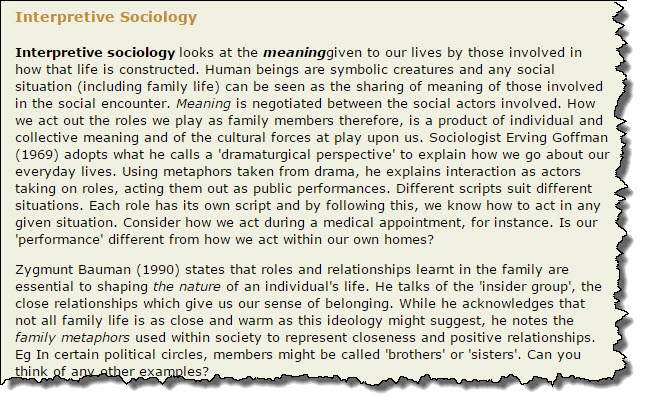 The acquisition of language
The acquisition of languageYear 2 – Option module: Providing a Curriculum
This module provides a brief opportunity to study the holistic development of children aged 3-18 years. Areas of study / investigation will focus on the history of education, Curriculum for Excellence and develop an understanding of how our young are provided with “a curriculum for life”.
The study will concentrate on the role of the school in preparing young people for responsible independent living.
You will also consider external influences which support the educational system in Scotland today.
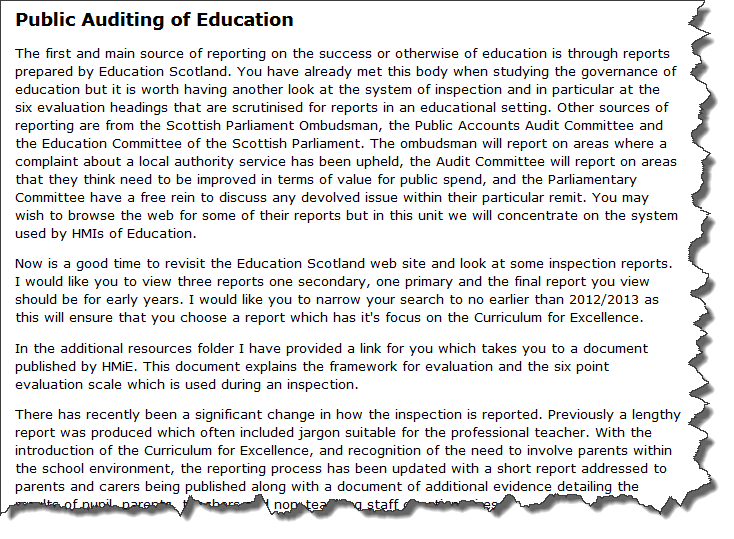
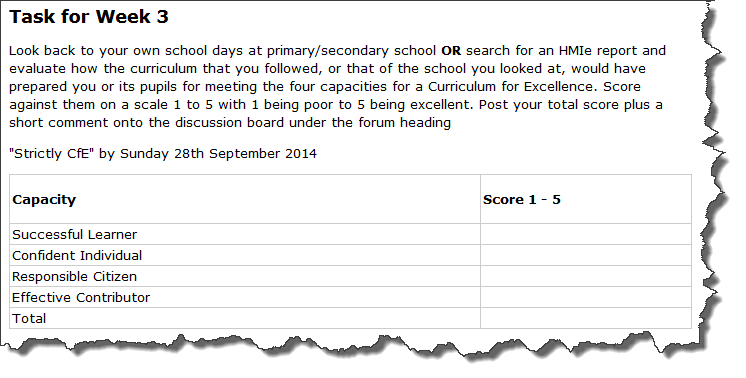
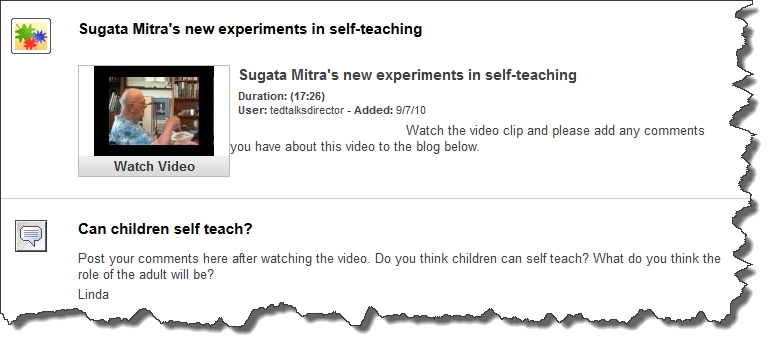
Sugata Mitra's new experiments in self-teaching
Students are directed to leaving comments on the module blog.
This module has 2 main aims, to critically evaluate the main theories of how language is acquired, and to investigate the practical implications of language delay and language related impairments in the care and education of children.
Successful completion of this module will leave students confident in their ability to study the psychology underpinning the acquisition of language and with a practical appreciation of the impact of language delay.
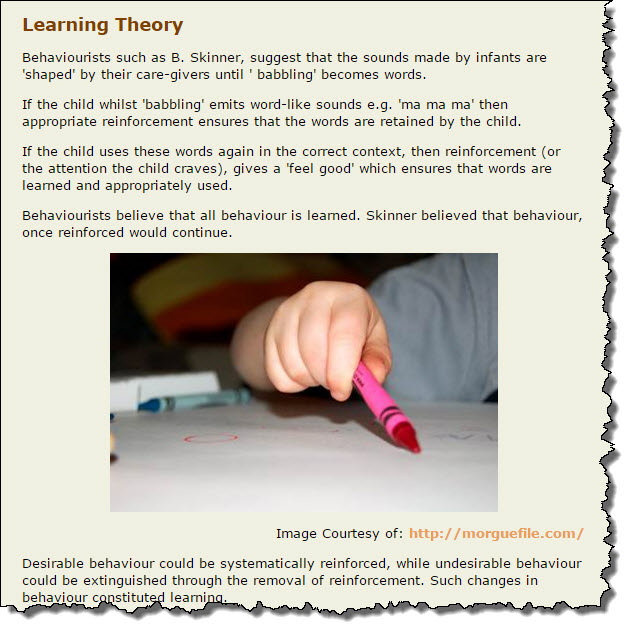
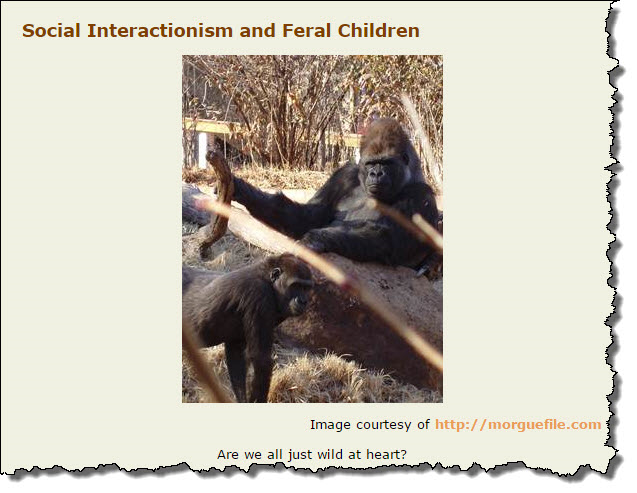

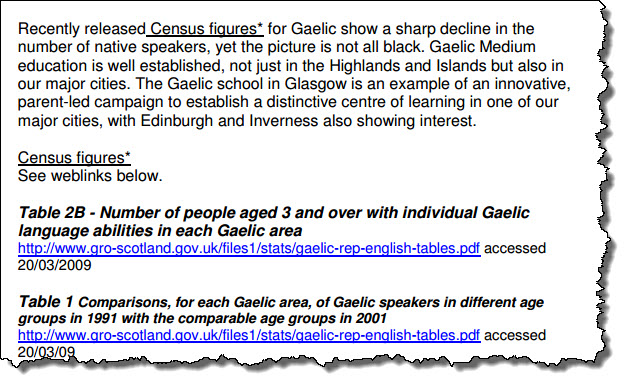
-
Your PAT tutors
Tutors and students
PATs are members of the university's academic teaching staff, support staff or Learning Centre managers. Whilst a PAT will often be a subject expert in their students' programme of study a PAT is not expected to bring that subject expertise to bear for all modules on the course. A PAT's main responsibilities are to give advice, signpost and offer referrals. The following testimonials from two PATs on the BACYS programme show the breadth of support they give.
'As a PAT, students will come to me with not just academic concerns but also issues they may be having at home, and my role is to give a listening ear and support as needed.'
‘The PAT is your professional point of contact throughout your academic journey. Your PAT acts as a liaison between you and the university for all academic matters.
The PAT aims to ensure you have a solid understanding of the time commitment and management, technology, and skills required to be a successful online learner. Your PAT will serve as your primary resource for queries and concerns regarding your studies, including module DIET selection, study progression and any potential barriers to successful completion of your studies. (Kyla Steele, Argyll College)
'Your PAT offers a pastoral role, general support and guidance in a confidential manner throughout your academic journey.'
‘As a pat, my role changes throughout the year. Initially with students settling down and working hard to understand how the online learning environment works, my role is to provide support and guidance to ensure that all students are understanding how it all works. Moving through the weeks, I help with academic support such as assessment structures, referencing, accessing resources such as the online library and general help with navigation through Blackboard. Help with study timetables and realistic goals and targets are set to help students focus.
At the more stressful times when assessments are due or exams are being sat, I provide support and encouragement (and sweets and cakes!).
Towards the end of a student’s time with me, I will provide references or letters of support for jobs or further study and will also give guidance on career areas of interest – and if I don’t know I will send them to someone who does! I want all the students that I am PAT for to feel that they can contact me and talk to me when they need so I can help them be the best they can at their studies and progress onto the careers they are aiming for. (Diana Macleod, North Highland College)
'Being a PAT is one of the best parts of my job'
‘Being a PAT is one of the best parts of my job as I get to know my students from induction and watch them progress through the course. I like to build an open and honest relationships with my students so they feel they can come to me when times are hard and know they will be listened too and signposted and guided to the people and resources that will help them with the issues they experience.
I do all the usual administrative parts around enrolment and module selection and even the wee nudges about library books being overdue but I also help them to get to know each other in my groups to they can have study buddies and peer support and just to connect them to each other as well as the course as students of UHI.I do provide a listening ear most especially around assessment times and can get as many as 40 texts in a day when the class have assessments looming all of which just need the acknowledgement that assessments are stressful and that bit of reassurance that yes they can do it.
Sometimes I even just say Go and do it and the sympathy and praise comes later. I want to share one example:
I had a young lady join my group and her family cultural background was that women did not go into Higher Education. Within weeks her father insisted she leave the course and work in the family shop and help look after her younger brother so she came and told me and we activated a withdrawal as she felt she had no choice. But, she did have a dream of achieving a degree so came back to see me almost 1 year later and we sat down and discussed how she could do this, part time at first and we would review after each level and then her final year full time. We met regularly just so she could talk and get some reassurance. Times were very challenging and this made her ill but we claimed mitigation and got her through each level. When her financial situation deteriorated to the extent she was having to support her brother I took her to guidance and they helped her apply for a student loan and she found part time employment and she just took one step at a time and we overcame each hurdle together.
In September I watched her graduate with her degree and as she approached the platform we made eye contact and her journey to where she was flashed between us. She told me later “what you have done for me has changed my life forever”. Her words will stay with me forever and have captured for me everything that is important about the PAT role.' (Kathleen Murray, Inverness College)
Tutors and studentsMuch of the communication between tutors and students, and students and students, takes place via the VLE. The VLE has a variety of communication tools which you and your tutors may use in modules.
The discussion board
The discussion board is tool for sharing thoughts and ideas where you can post and read messages. It is used by tutors and students for both general, informal communication and for activities as part of the learning process. On your module, you may work in groups, individually or as a class.



The collaboration chat room
Students and staff may be located in different areas and may also work full- or part-time while they are on the course. The chat room provides an opportunity for everyone to meet online and use chat to share their thoughts via chat messages.
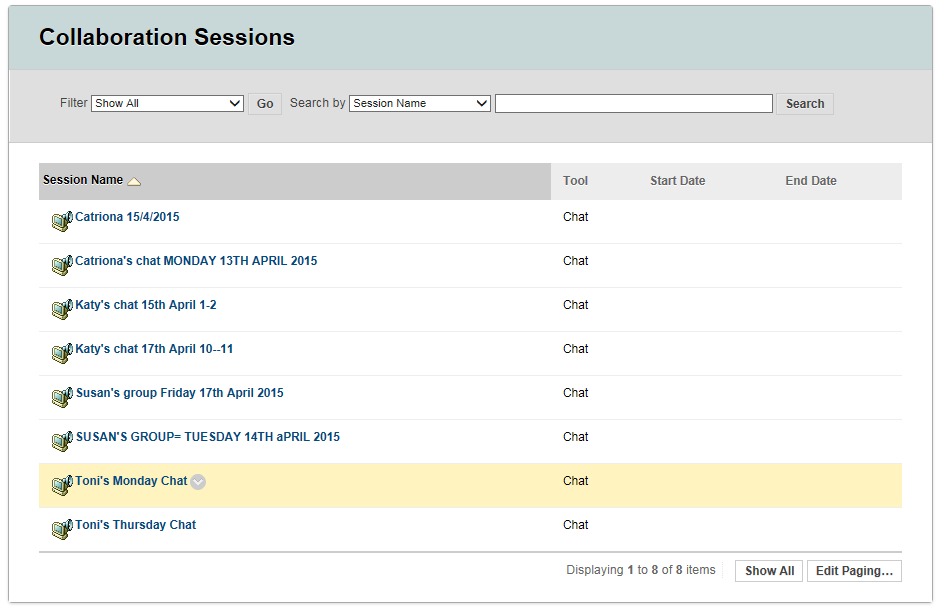
I decided to enrol on BACYS as a means for a change in career. With two young children the cost of childcare meant that at the time it just wasn’t feasible to return to work. As soon as my youngest daughter started school, I started BACYS from Perth UHI. I am now in fourth year, and although it has been a challenging course I can honestly say that I have enjoyed the whole learning experience.
I can honestly say that I have enjoyed the whole learning experience.
Learning online has been the ideal way to both work towards gaining a degree and having the ability to look after my family. I have found that the chatrooms and tutor contact has provided the support and drive to keep me going.
The great variety of module options has meant that I have been able to tailor my module choices to my own personal interests. The core modules have been beneficial in the sense that I have been introduced to key information such as legislation in child related issues and professional issues which I can see will be of benefit in any child related work place. I am hoping to continue to do PGDE Primary Education. Despite having been at University before, I honestly believe that this degree has given me invaluable knowledge and the confidence to write and communicate much more effectively. I would thoroughly recommend anyone to apply for BACYS if you are hoping to secure a career in a child related profession.
It's both an interesting and challenging course. The online learning is easy to use and there is great support from lecturers and other students. I'm so enjoying the course.
-
Assessment
Assessment support
Your module tutor will use the VLE to offer you guidance about your assignments.
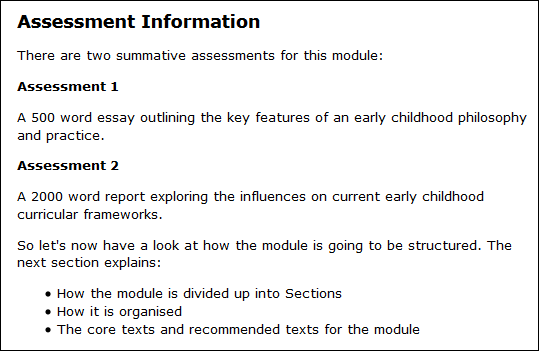
In the example above the assessments are in the form of an essay and a report. Alternatively, in some modules, your posts to the discussion board on specific topics may form part of your assessment (for example, 20% of your final mark).
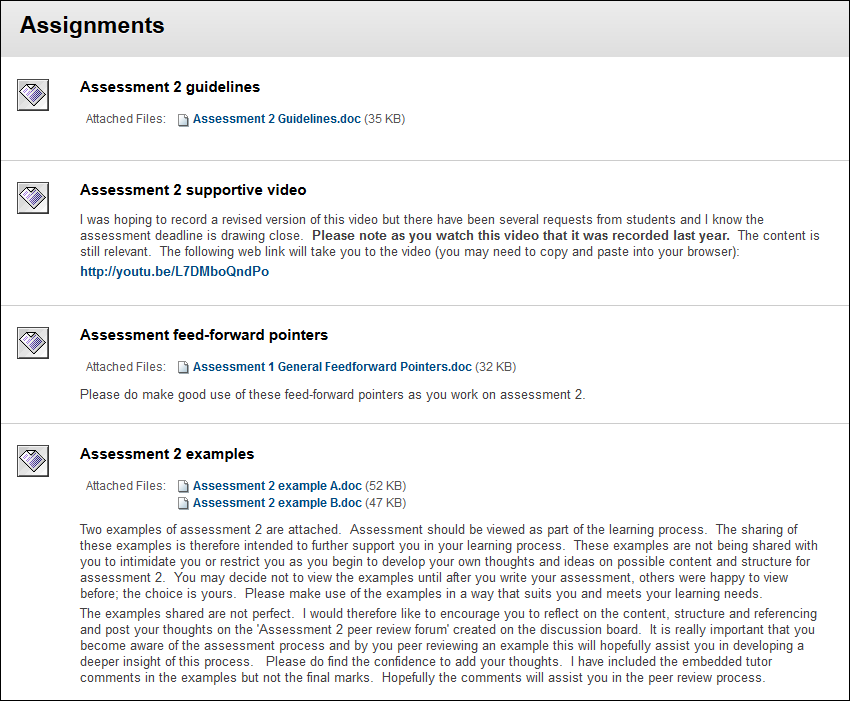
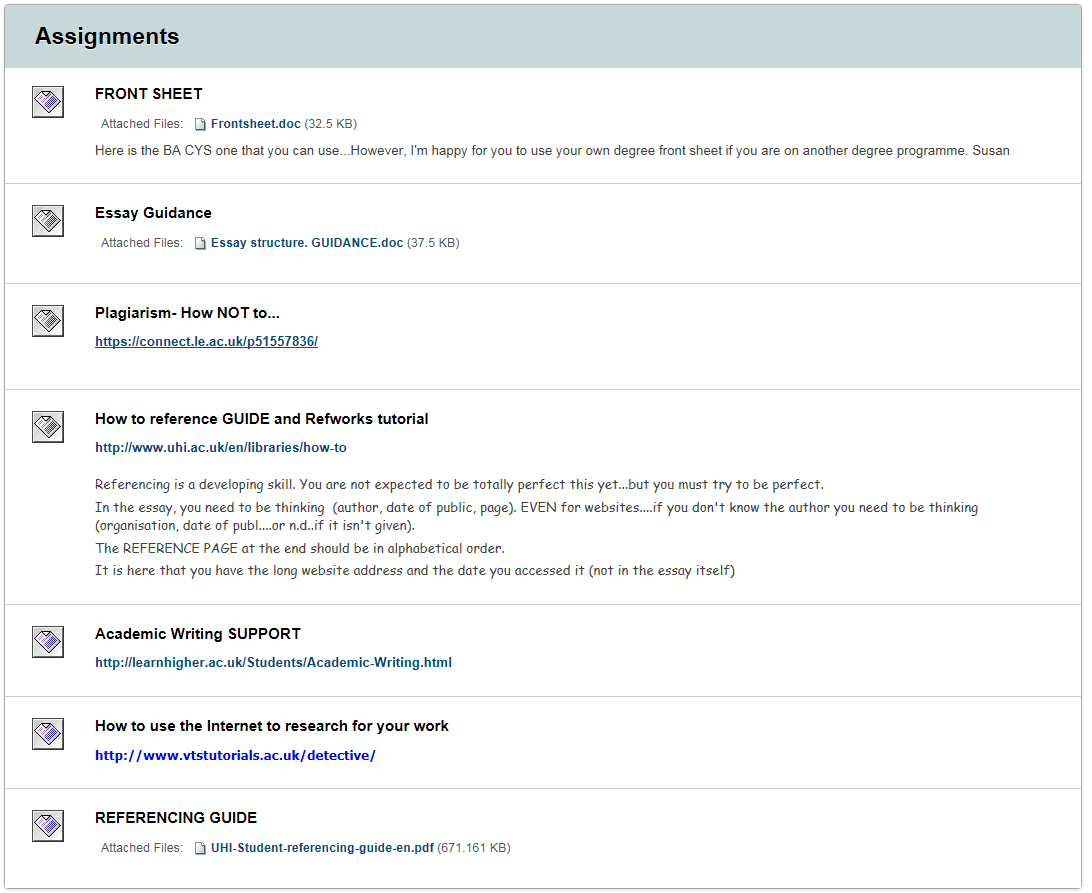
Guidelines and support for assessments is provided in each of your modules. This can take the form of documents which you can download, as well as discussion board posts or live chat room sessions
